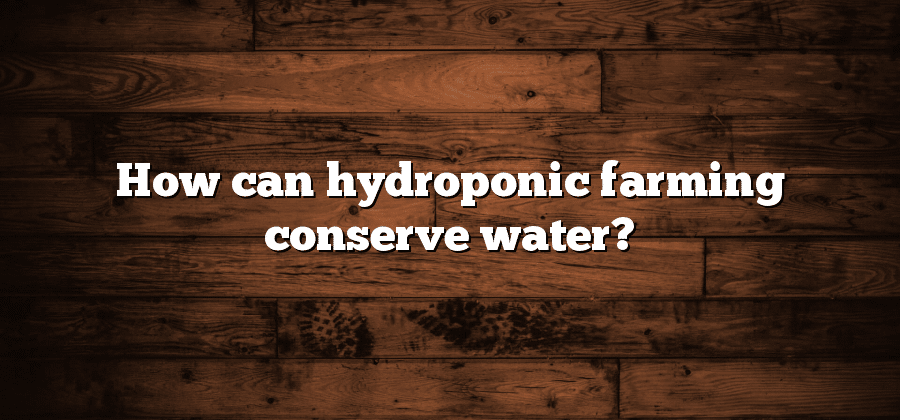Benefits of Hydroponic Farming
Hydroponic farming, a system that allows plants to grow without soil, offers numerous benefits that are transforming the agricultural industry. One major advantage lies in the ability to control and optimize nutrient levels for plants. In traditional soil-based farming, plants rely on the nutrients naturally present in the soil, which may vary in quantity and quality. However, hydroponics allows for precise monitoring and adjustment of nutrient solutions, ensuring that plants receive the ideal mix of essential elements for optimal growth. This precise nutrition management not only enhances plant health and productivity but also minimizes the use of fertilizers and reduces environmental impacts associated with excess nutrient runoff.
Additionally, hydroponic systems offer superior space efficiency compared to traditional farming methods. By eliminating the need for soil, plants can be grown in smaller spaces, making hydroponics an ideal solution for urban agriculture and areas with limited land availability. Vertical farming, a type of hydroponic system, takes space efficiency to another level by stacking multiple layers of plants vertically. This vertical arrangement allows for greater plant density, significantly increasing crop yields per square meter. This method of farming is proving to be particularly beneficial in urban areas, where land scarcity and high demand for fresh produce often pose challenges to traditional farming practices.
The Efficiency of Hydroponic Systems
Hydroponic systems have gained significant attention in the farming industry due to their remarkable efficiency. Unlike traditional soil-based farming, hydroponic systems eliminate the need for soil altogether. This allows for precise control over nutrient delivery, water usage, and environmental conditions. By providing plants with the nutrients they need in a highly concentrated solution, hydroponic systems ensure that plants receive optimal nutrition, resulting in faster growth and higher yields. Furthermore, the absence of soil minimizes the risk of soil-borne diseases that can hinder plant growth and damage crops, translating to fewer crop losses and enhanced overall efficiency.
Another key factor contributing to the efficiency of hydroponic systems is the ability to optimize water usage. In conventional farming, a significant portion of water is lost due to runoff, evaporation, and inefficient irrigation practices. However, in hydroponic systems, water usage is reduced dramatically as it is recirculated and reused within the system. Moreover, the closed-loop nature of hydroponics minimizes the impact on the environment by significantly reducing water waste and conserving this precious resource. This not only benefits farmers by reducing their water expenses but also addresses the pressing global water scarcity issue and promotes sustainable farming practices.
Reduced Water Usage in Hydroponic Farming
Hydroponic farming offers significant advantages when it comes to reducing water usage. With traditional soil-based agriculture, a substantial amount of water is lost through evaporation and permeation. In contrast, hydroponic systems allow for targeted water delivery directly to the plant roots. This precise irrigation method ensures that water is efficiently utilized, minimizing wastage and maximizing plant uptake.
In a hydroponic setup, water is continuously circulated within a closed system, making it possible to reuse the same water multiple times. This recycling process further reduces water consumption, making hydroponics a sustainable farming method. Additionally, the use of **nutrient solutions** in hydroponics allows for the optimal delivery of nutrients directly to the plants, eliminating the need for excess water typically used in traditional farming to distribute nutrients through the soil. As a result, hydroponic systems can significantly reduce overall water usage while still providing plants with the necessary water and nutrients for healthy growth.
Optimal Water Management in Hydroponics
Hydroponic farming systems offer several benefits over traditional soil-based agriculture, including the efficient use of water resources. One of the key aspects of optimal water management in hydroponics is the ability to control and monitor water usage throughout the growing cycle. Unlike conventional farming, where water can be lost through evaporation or drainage, hydroponic systems allow for precise control over moisture levels. By delivering water directly to the roots of plants, this method eliminates water wastage, ensuring that every drop is utilized effectively.
In addition to minimizing water wastage, hydroponics also allows for the reuse and recycling of water. Many hydroponic systems implement closed-loop circulation, where water is continuously circulated and filtered, minimizing the need for fresh water inputs. This not only conserves water but also reduces the overall cost and environmental impact of hydroponic farming. Furthermore, advanced technologies, such as sensors and automated irrigation systems, enable growers to closely monitor and adjust water supply based on specific plant needs, further optimizing water management in hydroponics.






